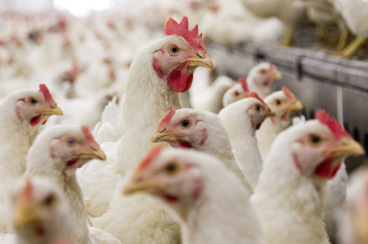More AI outbreaks reported across Europe

Avian influenza has been detected in as many as five poultry flocks in France, one in Germany, and one in Italy.
France had earlier reported three avian flu outbreaks, the country’s first in 8 years, with Germany reporting an outbreak earlier this year.
Location of outbreaks in France
The outbreaks in France were in the southwestern part of the country, in Dordogne department, an area that saw the three earlier outbreaks reported, and in Landes department, located southwest of there on the Atlantic coast.
According to a statement from the French agriculture ministry, three new highly pathogenic outbreaks were detected in Landes, affecting Guinea fowl and ducks, and in Dordogne, affecting ducks. Officials said the outbreaks were detected during enhanced surveillance triggered by the earlier outbreaks.
Earlier outbreaks in Dordogne, detected at the end of November, involved a mutated H5N1 strain closely related to European low-pathogenic avian flu strains, an initial assessment found. Another was caused by H5N2, the country’s first detection of the subtype, according to a report last week from the World Organization for Animal Health (OIE).
H5N2 in Southern Germany
In Germany, meanwhile, district agriculture officials reported a low-pathogenic H5N2 outbreak at a poultry farm near the Bavarian city of Cham, located in the southeast part of the country. Culling operations are reported to be under way.
ProMED Mail, the online reporting system of the International Society for Infectious Diseases, reported that the facility had about 12,900 poultry, including laying hens, ducks, geese, and turkeys. Earlier this year the highly pathogenic H7N7 virus hit poultry in Germany’s Lower Saxony region.
Italy also recently reported an H5N2 outbreak in Emilia-Romagna region, located in the northern part of the country.
Meanwhile there is heightened surveillance in the United States where H5 genetic material was recently found in a mallard duck killed by a hunter in Oregon.
Source: Cidrap













